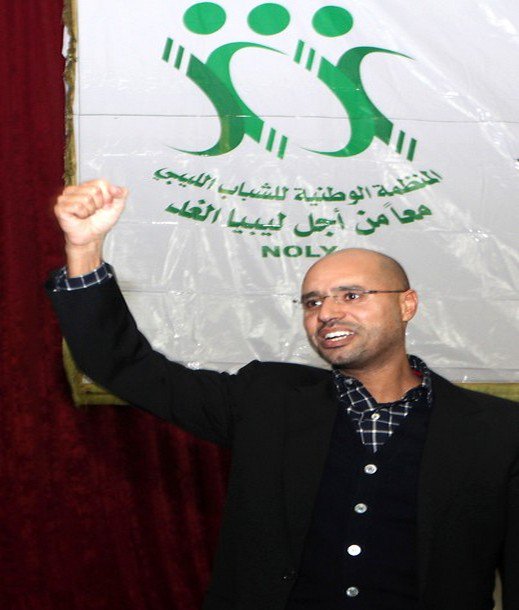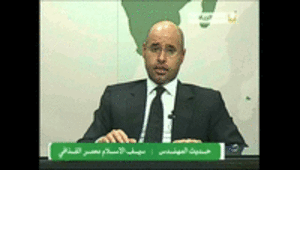Pentagon Has Plan to Cripple ISIS in Libya With Air Barrage
منتديات زنقتنا-منتديات شباب ليبيا الأحرار :: المنتديات السياسية :: الأخبار باللغة الانجليزية News in English
صفحة 1 من اصل 1
 Pentagon Has Plan to Cripple ISIS in Libya With Air Barrage
Pentagon Has Plan to Cripple ISIS in Libya With Air Barrage
WASHINGTON — The Pentagon has presented the White House with the most detailed set of military options yet for attacking the growing Islamic State threat in Libya, including a range of potential airstrikes against training camps, command centers, munitions depots and other militant targets.
Airstrikes against as many as 30 to 40 targets in four areas of the country would aim to deal a crippling blow to the Islamic State’s most dangerous affiliate outside of Iraq and Syria, and open the way for Western-backed Libyan militias to battle Islamic State fighters on the ground. Allied bombers would carry out additional airstrikes to support the militias on the ground. The military option was described by five American officials who have been briefed on the plans and spoke about them on the condition of anonymity because of their confidential nature.
Defense Secretary Ashton B. Carter outlined this option to President Obama’s top national security advisers at a so-called principals meeting on Feb. 22. But the plan is not being actively considered, at least for now, while the Obama administration presses ahead with a diplomatic initiative to form a unity government from rival factions inside Libya, administration officials said.
Even so, the United States military is poised to carry out limited airstrikes if ordered against terrorists in Libya who threatened Americans or American interests, just as it did against an Islamic State training camp in western Libya last month.
“We will continue to use the full range of tools to eliminate ISIL threats wherever they are,” Mr. Obama said on Feb. 25, after convening the National Security Council to discuss combating the Islamic State, also called ISIL or ISIS.
But the broader scale of the airstrikes option prepared by the Pentagon’s Africa Command and the highly secretive Joint Special Operations Command illuminated differences in perspectives and short-term goals within the administration. The scope of the military plan surprised some senior administration officials, and it drew warnings from some State Department officials that such airstrikes, if not coordinated properly, could jeopardize the United Nations-led effort to forge a unity government from Libya’s fractious political actors.
Advertisement
Continue reading the main story
Continue reading the main story
The detailed military planning does expand the choices available to Mr. Obama in the coming months as he and his advisers, along with allies like Britain, France and Italy, try to manage a tricky balancing act: nurture a fragile political process to form a unity government in Libya but not wait so long that the Islamic State grows too big for defeat by a limited — and politically acceptable — military action.
Gen. Joseph F. Dunford Jr., the chairman of the Joint Chiefs of Staff, summed up the current thinking about this juggling of priorities and the possibility of taking more aggressive military action in the future, at a news conference last week.
“Where there is opportunity to conduct operations against ISIL, to disrupt them at this point and not undermine the political process, that is where we are,” General Dunford said. “At some point in the future, if I believe we are at risk with that strategy, I will certainly come back to the secretary and make some different recommendations.”
Advertisement
Continue reading the main story
Continue reading the main story
Having actual options in hand, even if they are not imminent, forces the government to weigh more rigorously the consequences of such actions, officials said. And revealing details of the planning, which had not been previously shared with Congress, draws the scrutiny of lawmakers such as Senator John McCain, the chairman of the Armed Services Committee, who questioned the approach at a hearing on Tuesday.
Gen. David M. Rodriguez, the head of the Africa Command, declined to answer Mr. McCain’s questions about the options in open testimony, but he warned that Libya had become a failed state that the Islamic State was rapidly exploiting.
The spread of the Islamic State in Libya “continues to be a challenge because of the lack of governance, as well as the breakup of the military and the multiple militias on the ground,” General Rodriguez said.
The newly refined Pentagon planning comes amid increasing reports that British, American, French and possibly even Italian Special Operations forces have been on the ground in Libya for months. They have been conducting reconnaissance, gathering intelligence, vetting and possibly advising Libyan militias deemed good partners to fight the Islamic State in strongholds such as Surt along a 150-mile section of territory the terrorist group controls.
As recently as last fall, senior American commanders and intelligence officials said they lacked sufficient information about the Islamic State in Libya even to identify targets to bomb.
But this effort on the ground among special operators does not appear to be well coordinated, and seems to reflect the individual concerns of the various clandestine forces should they be called upon suddenly to speed up any unilateral military strikes against the Islamic State.
Pressure is growing on the United States and its Western allies to intervene militarily. Britain announced last week that it was sending 20 military trainers to Tunisia to help counter illegal cross-border movements from neighboring Libya. Tunisia has already built a 125-mile earthen wall that stretches about half the length of its border with Libya in an attempt to prevent militants from infiltrating.
Italy last month agreed for the first time to allow American armed drones to take off from an air base in Sicily to defend coalition forces fighting Islamic State extremists in Libya.
Last Friday, Italy’s Foreign Ministry confirmed the release of two Italians kidnapped in Libya in July. That good news came a day after ministry officials grimly announced that two other Italian hostages in the country had likely been killed in clashes between ISIS fighters and local militia fighters near Sabratha.
Last month, American warplanes bombed an ISIS training camp in Sabratha, 50 miles west of Tripoli, killing a militant commander linked to attacks on Western tourists. Those strikes targeted Noureddine Chouchane, a Tunisian militant, whom the Pentagon said helped arrange the arrival of Islamic State recruits from across Africa into Libya.
Advertisement
Continue reading the main story
Continue reading the main story
Advertisement
Continue reading the main story
Continue reading the main story
The strikes demonstrated the United States’ growing concern over Libya as a new base for the Islamic State and its willingness to use air power against militant commanders and infrastructure. So far, though, it has been a power limited by political constraints on the ground.
“We’d like nothing better than to have a government in place in Libya with whom we could work and from whom we could gain consent for engaging militarily in Libya,” James R. Clapper Jr., the director of national intelligence, told Congress last month.
Mr. Clapper said that in addition to Surt, ISIS is operating in Benghazi, Tripoli and other areas of the country.
Indeed, the reason so many military officials were willing to discuss classified war planning, including the option of aggressive airstrikes, was to show that the administration was taking the ISIS threat in Libya seriously. At the same time, though, the administration hopes to show that it is exercising restraint for the time being to help the political process succeed. The Pentagon produced the options at the White House’s request, but did not offer any formal recommendations, officials said.
Libya’s political leaders are divided between two loose political alliances in the capital, Tripoli, and the eastern city of Tobruk. The United Nations effort to form a unity government, led by the German diplomat Martin Kobler, has been stymied by the factional differences.
Last month, Mr. Kobler warned the West to move carefully if a unity government is formed, and not press it immediately to support foreign military intervention. He said that “very intense” anti-foreigner feelings run deep among Libyan politicians and that pressuring a new government to support outside military action against ISIS could undermine it.
Two prominent Libya specialists offered the same warnings to the Senate Foreign Relations Committee last week.
“A great risk is that outside intervention against the Islamic State, before a cohesive government is formed, could exacerbate political conflicts, bolster the power of local militias, and throw the country into greater turmoil,” said Frederic Wehrey, a Libya expert at the Carnegie Endowment for International Peace, who recently returned from two weeks in the country.
Claudia Gazzini, a senior Libya analyst with the International Crisis Group in Rome, told lawmakers: “Rushing an international military intervention in Libya to counter ISIS would be shortsighted and would probably backfire. Any such intervention should be discreet, measured and linked to a political strategy aimed at bringing Libyan factions together into a single government.”
http://www.nytimes.com/2016/03/09/world/middleeast/pentagon-considers-military-options-against-isis-in-libya.html?mwrsm=Facebook&_r=0
ـــــــ-ــــــ-ـــــ-ـــــ-ــــــ-ـــــــ-ـــــ-ــــ-ــــــ-ــــــ-ـــــــ-ـــــــ-ـــــــ-
التوقيع


ليبيا خضراء غصباً عن الكل

brokenpen82-

- الجنس :

عدد المساهمات : 5045
نقاط : 17032
تاريخ التسجيل : 08/04/2011
. :
. :
 مواضيع مماثلة
مواضيع مماثلة» 3arrested in Morocco before joining ISIS in Libya
» Italian President ISIS in Libya is alarming
» Al Qaeda's plan for Libya highlighted in congressional report
» UN warns Isis is strengthening hold in Libya with 'nationalistic narrative'
» British special forces 'blew up Isis suicide truck in Libya'
» Italian President ISIS in Libya is alarming
» Al Qaeda's plan for Libya highlighted in congressional report
» UN warns Isis is strengthening hold in Libya with 'nationalistic narrative'
» British special forces 'blew up Isis suicide truck in Libya'
منتديات زنقتنا-منتديات شباب ليبيا الأحرار :: المنتديات السياسية :: الأخبار باللغة الانجليزية News in English
صفحة 1 من اصل 1
صلاحيات هذا المنتدى:
لاتستطيع الرد على المواضيع في هذا المنتدى






» نكبة بلد المشاعر
» الى فرسان اليمن
» تخاذل أمّة
» ترياق الهَذَر
» تحية لفرسان لبنان
» أشجان عربية
» فلنحم وجودنا
» وداع الأبطال
» بين الدين والاخلاق
» حول مفهوم الحضارة
» فيم تكمن قيمة الانسان ؟؟؟
» حزب المجد
» نداء الإقدام
» نداء الى امّتنا
» حقيقة الثقافة
» وجعٌ على وجع
» تعاظمت الجراح
» بجلوا الابطال
» موقف عز وشرف